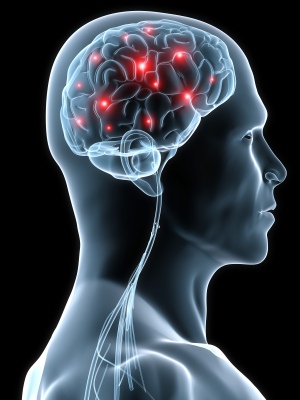The after effects of a stroke can be devastating. Simple daily tasks, including communication, can become impossible. But there may be hope for stroke survivors.
A study published in Stroke shows that a common herb may be useful in preventing permanent damage.
Researchers at John Hopkins University studied the effects of the herb on the brains of mice.1 The scientists divided the mice into two groups. They gave one group the herbal supplement for seven days. The other group of mice received nothing.
Researchers then induced all the mice with a stroke and after looked at brain function and brain damage.
The group of mice that took the herb showed impressive results. Free radical damage inside the brain was reduced by 48 percent. During a stroke free radicals kill cells inside the brain—causing brain damage that results in paralysis and memory loss. Even after the clot is cleared brain damage can continue to cause additional damage.
But the study showed the mice that got the herb had nearly 51 percent less neurological damage. And they showed limited paralysis and loss of limb strength.
If you are at risk of having a stroke, the authors of this study strongly suggest supplementation.
What was the herb that allowed a better quality of life?
Ginkgo biloba.
I’m sure you’ve heard of it. Ginkgo is a popular supplement to support memory brain function.
“Our results suggest that some element or elements in ginkgo actually protect brain cells during stroke,” said lead researcher Sylvain Doré. “Now we have a possible understanding for how ginkgo actually works to protect neurons from damage.”
Another study out of Iraq looked at the role ginkgo biloba plays after a stroke.2 Researchers studied the effects of oxidative stress and inflammation in stroke victims. Reducing both is vital for prevent further nerve damage or even another stroke.
One group took 1,500 mg of ginkgo for 30 days. Again, the results were positive. Ginkgo biloba reduced oxidative damage and inflammation.
Stroke is the third leading cause of death in the U.S.3 Roughly 795,000 people suffer one each year. And 185,000 of those cases are recurrent attacks.
Stroke is also the leading cause of serious, long-term disability. After the age of 55 your risk of having a stroke more than doubles every 10 years.
If you have high blood pressure you have a greater risk of suffering a stroke. Smoking, diabetes, heart disease, and obesity all put you at risk as well.4
If you fall in to any of those risk groups, a daily regimen of ginkgo biloba may just stave off brain damage in the case of an attack. And if nothing else ginkgo will help keep your brain healthy and your memory sharp.
Like this Article? Forward this article here or Share on Facebook.
References:
1 http://hopkinsmedicine.org/news/media/releases/Mouse_Studies_Suggest_Daily_Dose_of_Ginkgo_May_Prevent_Brain_Cell_Damage_After_a_Stroke
2 http://ncbi.nlm.nih.gov/pubmed/22548139
3 http://strokecenter.org/patients/about-stroke/stroke-statistics/
4 http://nhlbi.nih.gov/health/health-topics/topics/stroke/atrisk.html

